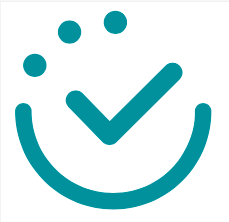Medicare vs. Medicaid: What’s the difference?
The simple answer: Medicare and Medicaid are two different healthcare programs with different functions and beneficiaries. The oversimplified answer: Medicare is a federal healthcare insurance program primarily for seniors regardless of income. Medicaid is a joint program between federal and state agencies to provide healthcare to low income people of all ages.
Here is a short video with mnemonic cues to help explain by Pixorize.
What is Medicare?
Medicare is an insurance program. Medical bills are paid from trust funds which those covered have paid into. It serves people over 65 primarily, whatever their income; and serves younger disabled people and dialysis patients. Patients pay part of costs through deductibles for hospital and other costs.
Small monthly premiums are required for non-hospital coverage. Medicare is a federal program. It is basically the same everywhere in the United States and is run by the Centers for Medicare & Medicaid Services, an agency of the federal government.
For more information regarding Medicare and its components, visit http://www.medicare.gov.
Medicare is a federal health insurance program for:
- People age 65 or older.
- People under age 65 with certain disabilities.
- People of all ages with End-Stage Renal Disease (permanent kidney failure requiring dialysis or a kidney transplant).
Consumers contribute to some of the costs of Medicare through premiums, deductibles and copayments.
How do I enroll in Medicare?
You can call the Social Security Administration at 1-800-772-1213 to enroll in Medicare or to ask questions about whether you are eligible. You can also visit their website at www.socialsecurity.gov.
The Medicare.gov website also has a tool to help you determine if you are eligible for Medicare and when you can enroll. It is called the Medicare Eligibility Tool.
If you already receive benefits from Social Security:
If you already get benefits from Social Security or the Railroad Retirement Board, you are automatically entitled to Medicare Part A (Hospital Insurance) and Part B (Medical Insurance) starting the first day of the month you turn age 65. You will not need to do anything to enroll. Your Medicare card will be mailed to you about 3 months before your 65th birthday. If your 65th birthday is February 20, 2010, your Medicare effective date would be February 1, 2010. (Note: if your birthday is on the 1st day of any month, Medicare Part A and Part B will be effective the 1st day of the prior month. For example, if your 65th birthday is February 1, 2010, your Medicare effective date would be January 1, 2010.)
If you are not getting Social Security benefits:
If you are not getting Social Security benefits, you can apply for retirement benefits online. If you would like to file for Medicare only, you can apply by calling 1-800-772-1213.
If you are under age 65 and disabled:
If you are under age 65 and disabled, and have been entitled to disability benefits under Social Security or the Railroad Retirement Board for 24 months, you will be automatically entitled to Medicare Part A and Part B beginning the 25th month of disability benefit entitlement. You will not need to do anything to enroll in Medicare. Your Medicare card will be mailed to you about 3 months before your Medicare entitlement date. (Note: If you are under age 65 and have Lou Gehrig’s disease (ALS), you get your Medicare benefits the first month you get disability benefits from Social Security or the Railroad Retirement Board.) For more information about enrollment, call the Social Security Administration at 1-800-772-1213 or visit the Social Security website. See also Social Security’s Medicare FAQs.
For more information, see Medicare.gov

Medicare Benefits are broken into Medicare part A,B, C and D that help cover specific services
Medicare Part A (Hospital Insurance) –
Part A helps cover inpatient care in hospitals, including critical access hospitals, and skilled nursing facilities (not custodial or long-term care). It also helps cover hospice care and some home health care. Beneficiaries must meet certain conditions to get these benefits. Most people don’t pay a premium for Part A because they or a spouse already paid for it through their payroll taxes while working.
Medicare Part B (Medical Insurance) –
Part B helps cover doctors’ services and outpatient care. It also covers some other medical services that Part A doesn’t cover, such as some of the services of physical and occupational therapists, and some home health care. Part B helps pay for these covered services and supplies when they are medically necessary. Most people pay a monthly premium for Part B.
Medicare Part D (Prescription Drug Coverage) –
Medicare Part D is also known as Medicare Prescription Drug plan. Medicare prescription drug coverage is available to everyone with Medicare. To get Medicare prescription drug coverage, people must join a plan approved by Medicare that offers Medicare drug coverage. Most people pay a monthly premium for Part D.
Medicare Advantage Plan-
Medicare Advantage Plan is offered by a private company that contracts with Medicare to provide you with all your Medicare Part A and Part B benefits. In most cases, Medicare Advantage Plans also offer Medicare prescription drug coverage. A Medicare Advantage Plan can be an HMO, PPO, or a Private Fee for- Service Plan. May sometimes be referred to as Medicare Part C.
Medicare Certified-
Medicare Certified facilities can offer services to individuals receiving Medicare benefits in exchange for reimbursement from Medicare.
Medicare Advantage Plan – Medicare Part C
Medicare Advantage Plan is offered by a private company that contracts with Medicare to provide you with all of your Medicare Part A and Part B benefits. In most cases, Medicare Advantage Plans also offer Medicare prescription drug coverage. A Medicare Advantage Plan can be an HMO, PPO, or a Private Fee for Service Plan.

**Formerly known as Medicare Part C or “Medicare+Choice– These are Medicare-approved private insurance plans, including HMOs, PPOs, private fee-for-service plans, and medical saving accounts. These plans may or may not include prescription drug coverage. The M+C program in Part C of Medicare was renamed the Medicare Advantage (MA) Program under the Medicare Prescription Drug, Improvement, and Modernization Act of 2003 (MMA), which was enacted in December 2003. The MMA updated and improved the choice of plans for beneficiaries under Part C, and changed the way benefits are established and payments are made. Under the MMA, beneficiaries may choose from additional plan options, including regional PPO (RPPO) plans and special needs plans (SNPs).
Medigap (Medicare Supplement Health Insurance)
Medicare Supplemental Insurance is private insurance (often called Medigap) that pays Medicare’s deductibles and co-insurances and may cover services not covered by Medicare.
A Medigap policy is health insurance sold by private insurance companies to fill the “gaps” in Original Medicare Plan coverage. Medigap policies help pay some of the health care costs that the Original Medicare Plan doesn’t cover. If you are in the Original Medicare Plan and have a Medigap policy, then Medicare and your Medigap policy will each pay its share of covered health care costs.
Generally, when you buy a Medigap policy you must have Medicare Part A and Part B. You will have to pay the monthly Medicare Part B premium. In addition, you will have to pay a premium to the Medigap insurance company.
If you’re a person with Medicare or help a person with Medicare, visit Medicare.gov to find more information about Medicare.
What Is Medicaid?
Medicaid is an general assistance program. Medicaid provides health coverage to millions of Americans, including eligible low-income adults, children, pregnant women, elderly adults and people with disabilities.
Patients usually pay no part of costs for covered medical expenses. A small co-payment is sometimes required.
Medicaid is administered by states, according to federal requirements. The program is funded jointly by states and the federal government.
Each state Medicaid agency has full responsibility for all aspects of the administration and operation of the Medicaid program in their state, including determining eligibility for and enrollment into their program.

To see if you qualify for your state’s Medicaid (or Children’s Health Insurance) program, see: https://www.healthcare.gov/medicaid-chip/eligibility/
Visit https://www.medicaid.gov/about-us/beneficiary-resources/index.html#statemenu to find state-specific information on:
• How to apply for Medicaid
• How to see if you are eligible for Medicaid
• How to contact your state
• How to check on your Medicaid
• How to get a new Medicaid card
Medicaid Eligibility Requirements
Medicaid eligibility criteria vary from state to state. Many states have expanded their Medicaid programs to cover more low-income adults. If you are unsure if you might qualify for Medicaid, you should apply.
You might be eligible depending on your household income, family size, age, disability, and other factors. You must be a United States (U.S.) citizen, a U.S. national, or have a satisfactory immigration status to be eligible for full benefits.
Visit HealthCare.gov to take a quick screening to help you determine your eligibility for Medicaid or other health insurance options. Please contact your state for all state-related Medicaid questions.
When to contact your State Medicaid Agency
In order to assist you in getting a timely response, please contact your State Medicaid Agency (click your state link above) for any questions on the following:
- Medicaid Eligibility
- Coverage and Services
- Liens and Third Party Liability (other insurance)
- Provider Enrollment
- Medicaid Claims
- Lost Medicaid Card/ Replacement
- Finding a Medicaid/CHIP Provider
- Status of a Medicaid/CHIP Application
If you need assistance in any of the areas noted, you will need to contact the agency for Medicaid/CHIP in your state of residence or the state you have questions about in order to receive assistance. Please contact your state for all state-related Medicaid questions.
Medicaid Contact Information by State and Territory
Alabama★ Alabama Medicaid
|
Alaska★ Alaska Medicaid
|
American Samoa
|
Arizona★ Arizona Health Care Cost Containment System (AHCCCS)
|
Arkansas★ Arkansas Medicaid
|
California★ Department of Health Care Services
|
Colorado★ Health First Colorado
|
Connecticut★ Connecticut Medicaid
|
Delaware★ Delaware Medicaid & Medical Assistance
|
District of Columbia★ DC Medicaid
|
Florida★ Florida Agency for Health Care Administration
|
Georgia★ Georgia Medicaid |
Guam
|
Iowa★ Iowa Department of Human Services
|
Massachusetts★ Massachusetts Health & Social Services
|
Michigan★ Michigan Department of Health & Human Services
|
Montana★ Montana Department of Public Health and Human Services
|
New York★ New York State Department of Health
|
Puerto Rico |
Rhode Island★ Rhode Island Executive Office of Health and Human Services
|

